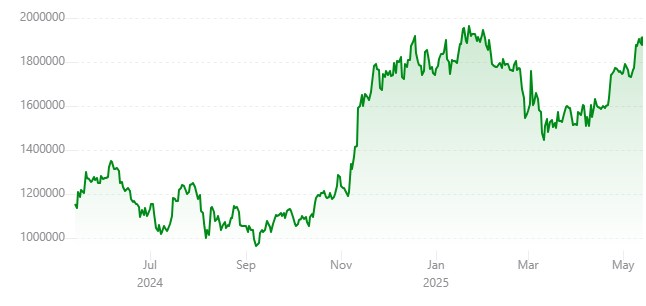If you work remotely, you may end up paying more for your home insurance, but you will likely save money on your car insurance.
Despite the return-to-office trend gaining momentum, some companies still encourage their employees to work from home, as this saves the business money; no big office space needs to be rented and there is less electricity and Wi-Fi consumption.
However, working from home impacts how employees use their homes and cars. Therefore, they must consider this when insuring these assets.
Nomie Nxumalo, executive head of people and transformation at MiWay, advises homeowners and remote workers to review their coverage to avoid costly gaps.
“Many people embrace the convenience of home offices, but only a few may realise that this work-life balance choice (or opportunity, as some companies do not allow this) could have significant implications for their insurance policies,” she said.
If you work remotely, you may end up paying more for your home insurance, but you will likely save money on your car insurance.
ALSO READ: Here is your home insurance checklist
Home insurance implications
Nxumalo said the integration of workspaces into personal residences brings about certain dynamics to home usage.
“Many homeowners have invested in expensive office equipment, increased their reliance on home internet and even started running businesses from their residences.
“However, failing to inform insurers about these changes could lead to gaps in coverage or even rejected claims in some cases.”
She emphasised that it is essential to notify your insurer if a portion of your home is being used for business purposes. This is particularly relevant if you are running a business or working remotely, as most standard home insurance policies are structured around the personal use of the home.
Why you must update your home insurance
She said home offices usually have valuable household equipment like computers and printers, as well as a backup power supply, which many people installed when load shedding was at its worst.
Other items could include fridges and storage, depending on the business activities. These products may require extra coverage beyond a standard insurance policy and would certainly need to be considered under contents coverage.
“Additionally, handling sensitive data from home can expose you to cyber threats, yet most home insurance policies do not include cybersecurity.”
ALSO READ: Understanding car insurance: How much coverage do you really need?
Car insurance savings for remote workers
Nxumalo said remote work means less time spent on the road and the reduced mileage could translate to lower car insurance premiums.
“Insurers often assess risk based on driving frequency and people who need to drive to the office less may qualify for reduced premiums. However, it is also essential to ensure sufficient coverage when you are on the move.”
Therefore, it is essential for individuals to communicate with their insurer and update their policies to reflect their current lifestyles.
“Those who do not drive to work daily should check with their insurer to see if they qualify for mileage-based discounts or policy adjustments and if your personal vehicle is being used for business purposes, such as for deliveries, check to ensure coverage.”
The need to update insurance policies
She said it is important for people to proactively assess and update their insurance policies.
“Understanding the terms and conditions of cover can prevent potential financial setbacks and ensure sustained protection. �
“The best approach is to consult with an insurance professional to tailor coverage to your specific needs, ensuring all aspects of your work-from-home lifestyle are adequately safeguarded.”
NOW READ: Warning for South Africans buying homes












